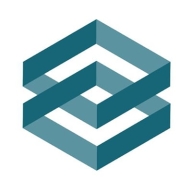

Rocky 8 and AlmaLinux are competing in the enterprise platform category. AlmaLinux seems to have the upper hand due to its community-driven support model, which may lead to broader adoption.
Features: Rocky 8 offers stability, long-term support, and enterprise consistency, making it ideal for large enterprises. AlmaLinux provides flexible adaptability, compliance features for regulated industries, and a broader feature set.
Ease of Deployment and Customer Service: Rocky 8 supports straightforward deployment with extensive documentation. AlmaLinux offers flexible deployment options with strong community-driven support, providing a wider range of resources. However, Rocky 8's structured approach may suit organizations seeking formal support channels.
Pricing and ROI: Both Rocky 8 and AlmaLinux are open-source with no direct cost for deployment. Rocky 8's ROI benefits stem from its enterprise-ready stability and predictable operational costs. AlmaLinux users experience ROI benefits from faster adaptability and flexible deployment and support advantages.
AlmaLinux is an open-source, enterprise-level Linux distribution designed to provide stability, high performance, and community-driven support. It offers compatibility with RHEL, making it a reliable option for businesses seeking robust OS alternatives.
Built by CloudLinux, AlmaLinux serves enterprises looking for a powerful Linux distribution. It boasts seamless transitions from CentOS, providing a familiar environment for IT teams. With its open-source nature, AlmaLinux empowers organizations by offering control over their workflows. It supports diverse workloads, making it suitable for handling anything from basic setups to complex architectures. AlmaLinux stands out due to its strong security features, which focus on protecting sensitive data and maintaining secure server environments.
What are AlmaLinux's most important features?AlmaLinux has been implemented across industries like finance, healthcare, and technology due to its reliability and adaptability. In finance, it ensures secure transactions and data integrity. Healthcare organizations rely on it for managing sensitive patient data. Tech companies use it for its stability and community-driven enhancements, making it a versatile choice for diverse applications.
Rocky 8, also known as Rocky Linux 8, is an open-source enterprise operating system that provides a reliable and stable environment for professional workloads. It is designed to be fully compatible with Red Hat Enterprise Linux.
Rocky 8 offers robust performance and enhanced security features, making it an ideal choice for businesses seeking a free and reliable alternative to commercial Linux distributions. With its community-driven approach, it ensures timely updates and active support from developers and users across the globe. Enterprises can efficiently deploy Rocky 8 in various IT infrastructures to maintain continuity and high performance. Adapting to the evolving needs of tech environments, Rocky 8 guarantees long-term stability.
What are the Key Features of Rocky 8?
What Benefits and ROI to Look for in Reviews?
Rocky 8 is implemented across many industries, from technology and finance to healthcare, by providing the necessary infrastructure to support critical operations while ensuring data security and compliance with industry standards. Its open-source nature allows for wide-ranging customization and optimizations, which is particularly beneficial for sectors that demand high-security levels and specific regulatory compliance.
We monitor all Operating Systems (OS) for Business reviews to prevent fraudulent reviews and keep review quality high. We do not post reviews by company employees or direct competitors. We validate each review for authenticity via cross-reference with LinkedIn, and personal follow-up with the reviewer when necessary.